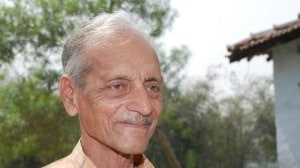Stay updated with the latest - Click here to follow us on Instagram
Supreme Court on transparency in judicial appointments
A bench of the court headed by Justice J S Khehar noted that transparency could be there only to a "certain degree".
The Supreme Court on Wednesday wondered how transparency cannot be taken beyond a point in appointment of judges to higher judiciary even when a person is casteist, communal or dishonest.
During the hearing on the new law to replace the collegium system of appointments, a bench of the court headed by Justice J S Khehar noted that transparency could be there only to a “certain degree”. The bench put a query as to how it can be proved even when it is known that a person under consideration for appointment for judgeship is casteist, communal, dishonest and misleads.
“How are you going to prove that a person is casteist? He is a communal? He misleads or is dishonest,” asked the constitution bench. “Can you put an opinion in public when it opens up a candidate (for judgeship) to public ridicule? Hundreds of litigations will then start. We can be transparent to certain degree but not to the world at large,” the bench said.
“The wisdom of people who watch over needs to be preserved. Transparency is good but you should give views above it. It may be transparent to a degree but not at large. We want to devise something that wrong is not perpetuated,” the bench observed. The bench intervened when senior lawyer Ram Jethmalani said the collegium system needs to be “opened up” and more transparency must be brought in appointments.
Resuming his arguments he asked the court step in to stop the NDA government from “tinkering” with the independence of judiciary with new law on appointment of judges which takes the country to the days of “notorious emergency”. “India would do what Dr Ambedkar, Nehru and other galaxy of patriots and constitutional experts wanted to be done in India. It is a matter of shame that what is sought to be done is what the late Indira Gandhi did with our judiciary during the notorious emergency by her diabolical advisors,” he submitted before the five-judge Constitution Bench.
He attacked the National Judicial Appointments Commission (NJAC) Act and asked the apex court to assert itself and not leave it to executive to tinker the independence of judiciary. “I feel insulted that I have to deal with this kind of junk. I request the bench to assert itself and not leave the issue of appointment of judges to the executive,” Jethmalani told the bench, also comprising Justices J Chelameswar, M B Lokur, Kurian Joseph and A K Goel.
“The Attorney General seems to tell us that in 15 countries the Executive is the final authority. This is what he wants India to do. This is disgraceful. I suggest that this court should express its anger and contempt for such a submission,” Jethmalani submitted. The hearing over a batch of petitions challenging the validity of the NJAC, which entered 26th day today, saw a visiting judge Justice Dennis Byron, President of the Caribbean Court of Justice, seated with the five-judge bench.
Launching a scathing attack on the submissions of the Attorney General Mukul Rohtagi, Jethmalani said the independence of the judiciary is not subject to any “checks and balances” which are under control of the executive and this formulation of the AG’s case is wholly “meaningless”.







